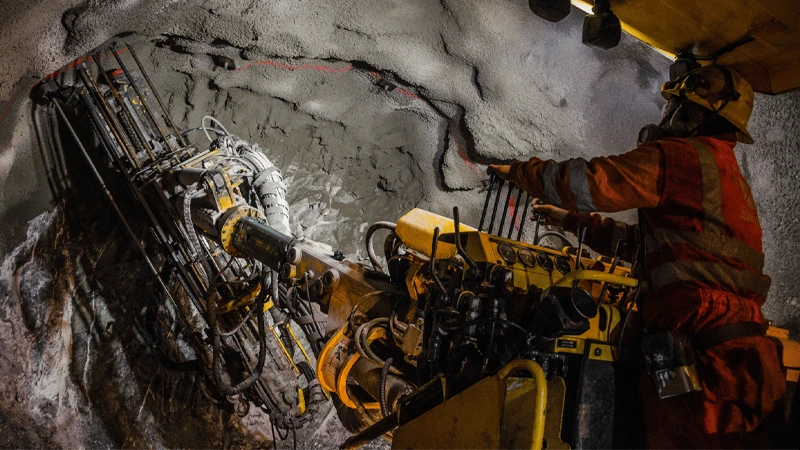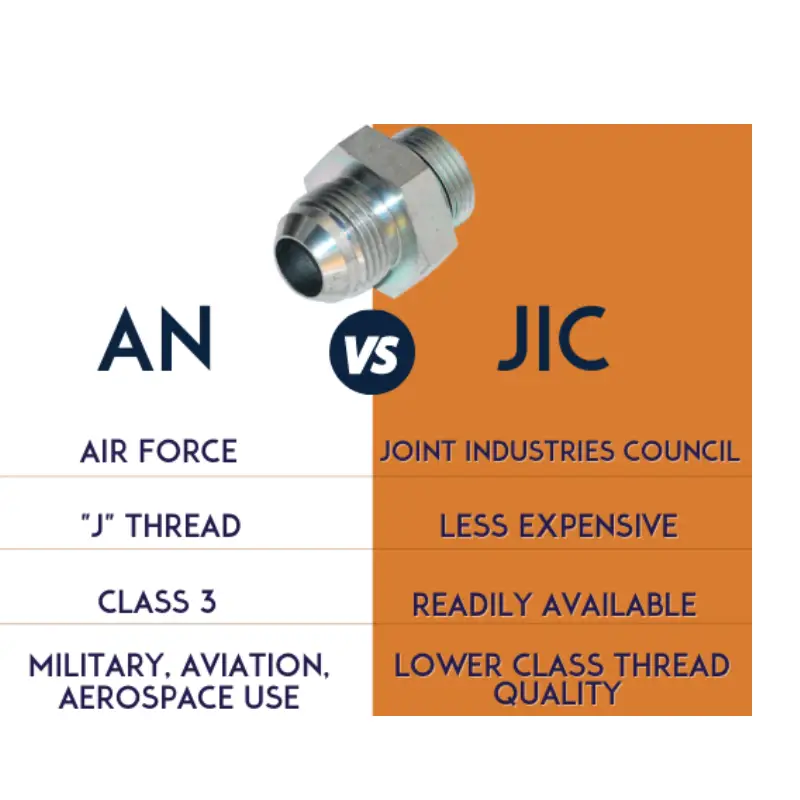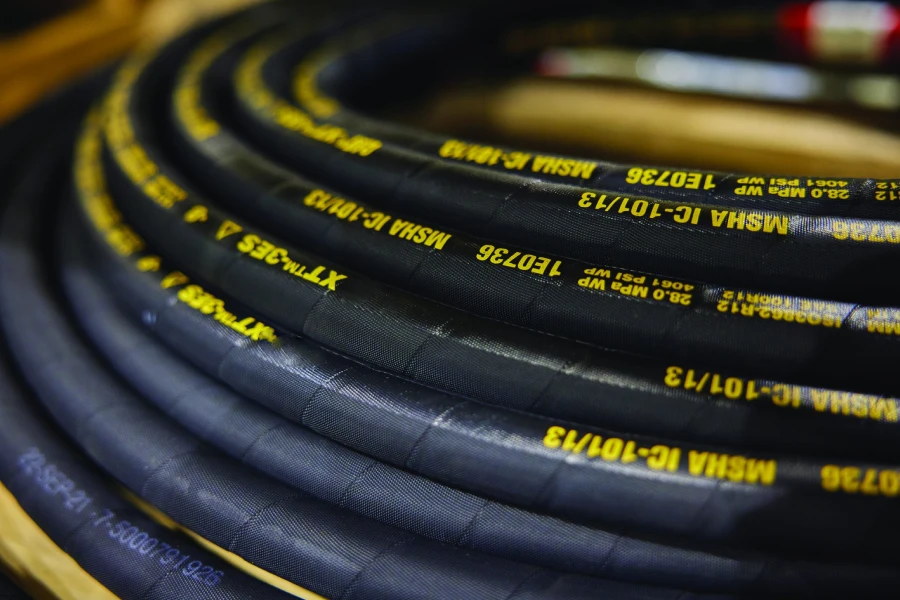It is basically important to store hydraulic hoses, keeping them safe and protective. So the hydraulic hose warehouse is the base to save hydraulic hose bulk.
Here is the ultimate guide to hydraulic hose storage in the hydraulic hose warehouse.
The hydraulic hose is an essential part of the machinery, that can help convey the hydraulic fluids to transfer heat and power to the engine.
Hydraulic Hose Warehouse
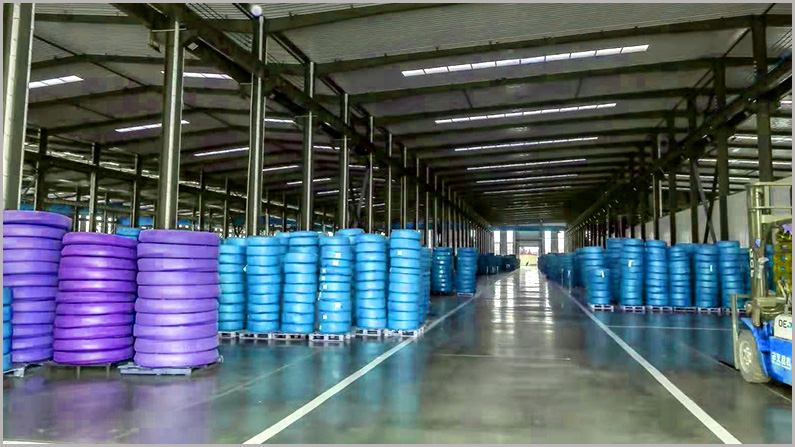
A splendid hydraulic hose can say the ability of a hydraulic hose manufacturer. Here we are the direct hydraulic hose supplier, owning a big hydraulic hose warehouse to store all hydraulic hoses, with safety and protection.
Hydraulic Hose Warehouse Storage Condition
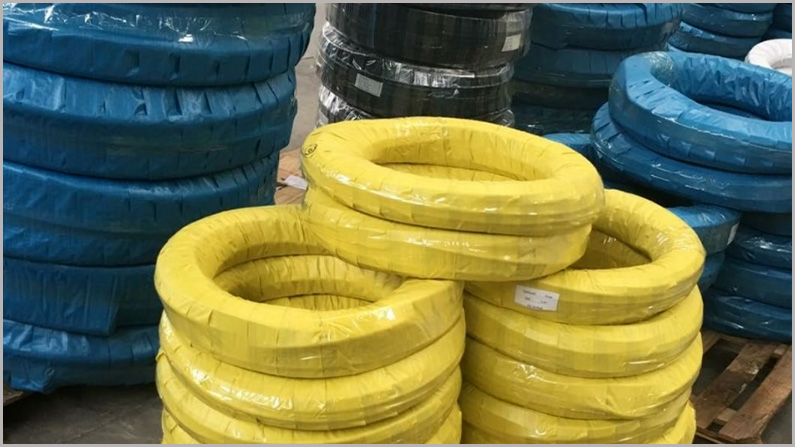
All finished hydraulic hoses will be stored in the hydraulic hose warehouse, and here are some storage conditions for hydraulic hose storage.
Regularly, hydraulic hoses can be stored in the hydraulic hose warehouse for a long time, due to their long production period, long service life, and etc, so it is important to prevent dust, keep hydraulic hoses clean and tidy all the time.
We can use the plastic film to pack the hydraulic hose, and the hydraulic hose packing is the last step of the hydraulic hose manufacturing process. The hydraulic hose packing machine will pack the hydraulic hose into rolls, and then be placed in order.
The PE plastic film is used as the packaging material, also paper, LLDPE, and HDPE woven bag as the packaging material, which can wrap hydraulic hoses well, keeping them dustproof.
If you store hydraulic hoses at home, you can use hydraulic hose dust caps and plugs to keep the hydraulic hose pipe clean to avoid dust.
In the hydraulic hose warehouse, the hydraulic hose will be pasted with labels or stickers to show the hydraulic hose basic information, including hydraulic hose specification, length, diameter, hydraulic hose brand, and etc, so we can find the right hydraulic hose the right way. These are important for hydraulic hose warehouse management.
Hydraulic Hose Warehouse Storage Environment
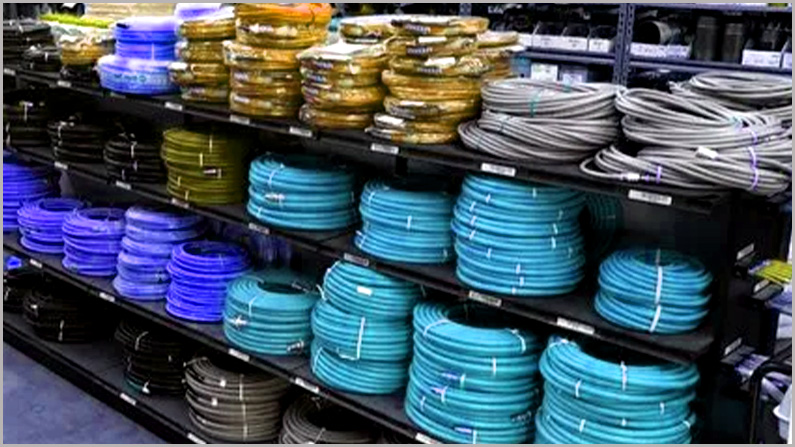
The environmental condition is basically important for hydraulic hose storage.
- 1) Keep away from heat sources. The hydraulic hose warehouse temperature should be cool, to ensure storage safety.
- 2) Avoid ozone: The ozone device can’t be there in the hydraulic hose warehouse, and the hydraulic hose can’t be exposed to the ozone atmosphere. And the mercury lamps, mercury tubes, high-voltage electrical devices, motors, or other devices that can generate electric sparks or discharges.
- 3) Avoid chemicals: they cannot be placed with corrosive products or exposed to the volatile gas of these products. Such as fuel, petroleum, grease, volatile matter, acidic substance, disinfectant, etc.
- 4) Avoid electric and magnetic fields: Keep away from equipment that generates electric and magnetic fields. Such as high-voltage cables, high-frequency generators.
- 5) Avoid light: Avoid direct sunlight and strong artificial light sources (such as high sodium lamps). If the storage area has windows, it should be covered with white, red, or orange coverings.
How Do You Store Hydraulic Hoses
Here are some tips on how to properly store hydraulic hoses:
1. Choose the Right Location:
- Cool and Dry: Store your hoses in a cool, dry environment. Avoid areas with extreme temperature fluctuations or high humidity.
- Away from Sunlight: Direct sunlight can degrade the hose material over time, so store them in a shaded area or inside a storage container.
- No Chemicals: Keep hoses away from chemicals like oil, grease, and solvents, as these can damage the hose material.
2. Hanging Storage:
- Hose Racks: Invest in a hose rack to hang your hoses individually. This prevents kinking, twisting, and damage from weight.
- Low-Impact System: Opt for a hanging system that minimizes stress on the hoses, ensuring their longevity.
3. Coiling:
- Loose Coils: If you must coil hoses, do so loosely to avoid tight bends or kinks.
- Avoid Sharp Bends: Sharp bends can weaken the hose and lead to potential leaks or failures.
4. Additional Tips:
- First-In, First-Out: Implement a system where older hoses are used first to prevent them from aging unnecessarily in storage.
- Regular Inspection: Periodically inspect your stored hoses for any signs of damage, such as cracks, cuts, or excessive wear.
- Labeling: Consider labeling your hoses with information like date of purchase, type of fluid, and pressure rating for easy identification and tracking.
Remember: Proper storage significantly extends the lifespan of your hydraulic hoses, ensuring their optimal performance and safety when you need them.
Conclusion
By following the guidelines outlined in this guide, you can effectively store your hydraulic hoses and ensure their longevity. Remember, proper storage practices not only extend the life of your hoses but also contribute to the overall efficiency and safety of your hydraulic systems.
Ready to upgrade your hydraulic hose inventory?
Kingdaflex offers a wide range of high-quality wholesale hydraulic hoses tailored to meet your specific needs. Contact us today for a quote.
Let us help you find the perfect solution for your hydraulic hose requirements.


